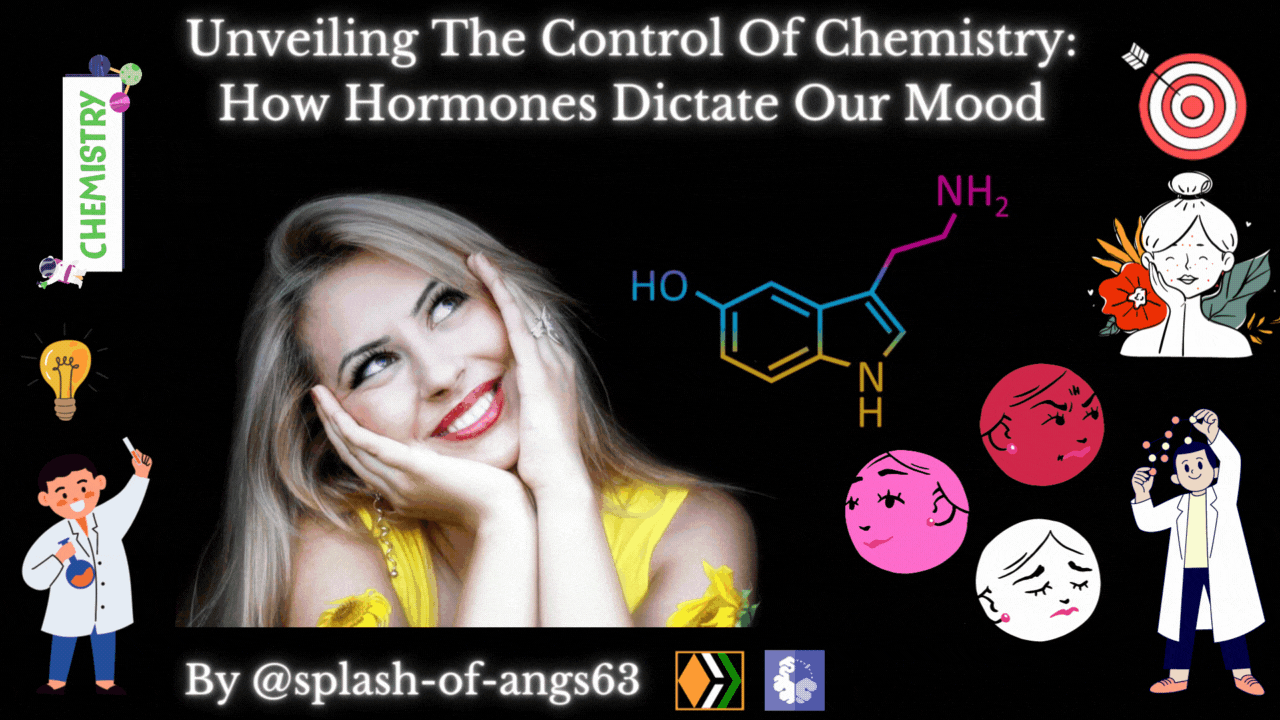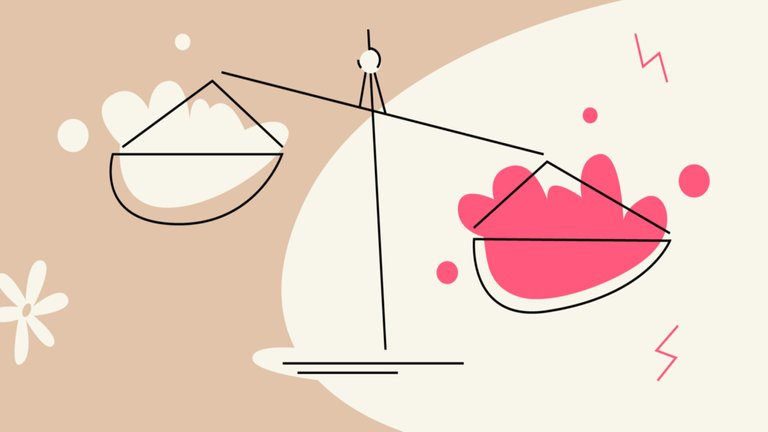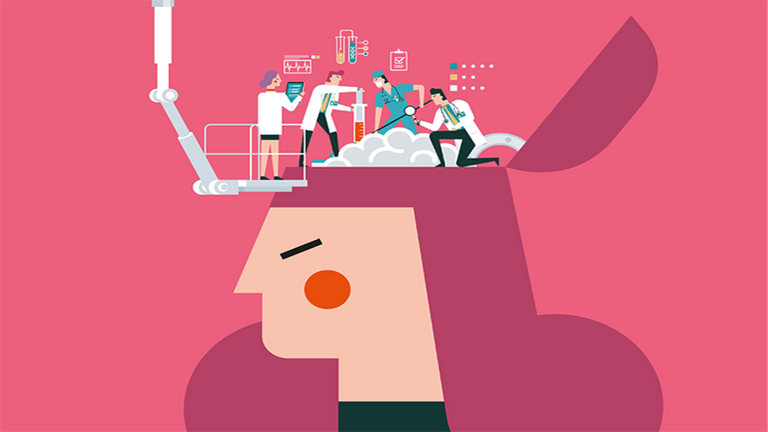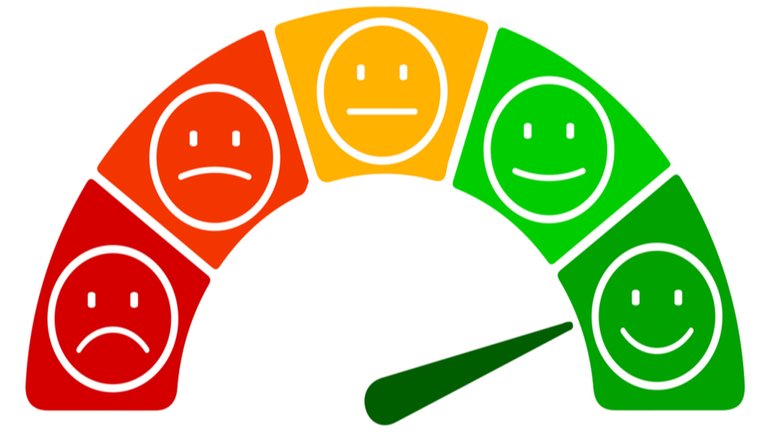Unveiling The Control Of Chemistry: How Hormones Dictate Our Mood |ChemFam #57|
Greetings to everyone! Whether you are an introvert, extrovert or an ambivert, you possibly might have thought about the happenings or things of what makes you happy! Now, imagine waking up early in the morning for a much awaited trip and the weather starts to turn you down or you had a breakup with your partner prior to an important event of your life. Yes, all these things manipulate our moods and emotions. But apart from the influence of these things, there lies chemistry behind our mood control. To be more specific chemicals that controls our brain to act in a certain way. Influence of your private life tends to control the extent of releasing these chemicals. It's the subtle interplay of hormones that often serves as the orchestrator behind the scenes. From euphoria to anxiety, contentment to stress, the delicate balance of these chemical messengers or neurotransmitter holds the key to understanding the complex landscape of human emotions.


The Hormonal Symphony
At the heart of mood regulation lies a symphony of hormones, each playing a distinct instrument in shaping our emotional state. These biochemical messengers, secreted by various glands throughout the body, travel through the bloodstream to communicate with different organs and systems, including the brain.
The brain controls the release of certain chemicals (called neurotransmitters) that communicate with other parts of the brain to alert or calm us down. This can affect our mood, thoughts, and behavior. It is important to know that when you produce too much or too little certain neurotransmitters, there is a chemical imbalance in the brain. If left untreated, this can lead to mental or neurological problems. On the basis of whether there is a lack of natural neurotransmitter or excess of the same, drugs are used to fill up that gap. I have already discussed these things in my previous posts (ChemFam #11 and ChemFam #42).

While numerous hormones contribute to our mood, four key players stand out and we shall be talking about these major four in this post.

Serotonin: The Mood Regulator
Often referred to as the "feel-good" neurotransmitter, serotonin is crucial in stabilizing mood and promoting a sense of well-being. It boosts our mood, sense of positivity and good sleep. Low serotonin levels have been associated with anxiety, depression and OCD (Obsessive-Compulsive Disorder). Interestingly, most of the serotonin is produced in the stomach, while the other three hormones are produced in the brain. Obviously, a healthy microbiome is key to this. A healthy and balanced diet, walking in nature, sunlight, massage and meditation increase serotonin production. Constant stress or pressure will negate it.
If you have low levels of serotonin, you’re likely to experience the following symptoms: sleeping issues, feeling bad about yourself, decrease in sexual desire, craving for sweet foods etc.
How to boost your serotonin levels?
Here are some ways to increase serotonin levels:
- Get more sunlight
- Exercise more
- Counselling and meditation
If you are stressed for a considerable period of time, your doctor may prescribe you antidepressants called selective serotonin reuptake inhibitors (SSRIs). SSRIs are the most commonly prescribed antidepressants in Australia. They work by preventing nerve cells from reabsorbing serotonin so quickly that more nerve cells can be used to carry the message.

Dopamine: The Feel-Good Hormone
Dopamine is also known as the reward or 'pleasure chemical'. Whenever we set a goal and reach it, the brain releases it. Whether the goal is to complete small tasks or achieve big business goals. The brain also produces dopamine by engaging in healthy behaviors—eating healthy, exercising, shopping, listening to music, talking on the phone, or having sex. A healthy source of dopamine can boost our energy, mood, and health.
However, we can get caught up in the dopamine surge and confuse it with long-lasting happiness. We will search for dopamine hits over and over, hoping that each hit will be bigger than the last. This is how we form addiction to alcohols, shopping, travelling, social media, do drugs, and even related to success or winning. If we don't get the peak than it makes us restless and anxious.

How to boost your dopamine levels?
Dopamine levels can be increased by eating foods that contain L-tyrosine, a protein needed to make dopamine.
Other ways to increase dopamine levels include:
- Avoid junk food
- Avoid foods high in fat, sugar, and caffeine
- Exercise every day
- Get enough sleep

Oxytocin: The Love Hormone
A warm and fuzzy hormone- Oxytocin is the love chemical. It gives us a sense of security and belonging and fosters trust and understanding. It encourages love, touch, holding hands, hugging, intimacy, letting people into our lives, trusting others and loving animals and pets. It is also strengthened when we are kind to others. Oxytocin makes an important contribution to long-term happiness.
The body uses oxytocin during childbirth, breastfeeding and sex. Low oxytocin levels have been associated with depression, but we are yet to completely understand the role of oxytocin in building relationships and more research is needed. How oxytocin regulates mood is also not straightforward. Increasing oxytocin levels can help treat phobias, depression and anger.

How to boost your oxytocin levels?
You can increase oxytocin levels with the following activities:
- Stroking a pet
- Meditation
- Other physical things such as hugging or holding hands, massaging or having sex
- Experience social interaction such as talking, laughing and making eye contact

Adrenaline: The 'Fight or Flight' Hormone
Adrenaline, often hailed as the "fight or flight" hormone, stands as a key player in orchestrating our moods and emotional responses. Secreted by the adrenal glands in response to perceived threats or challenges, adrenaline rapidly prepares the body for action. Its surge induces heightened alertness, increased heart rate, and a boost in energy, all of which can profoundly influence our mood. In moments of excitement, adventure, or even fear, adrenaline courses through our veins, triggering a surge of exhilaration and intensity. You might feel a mix of all of those emotions when doing something like skydiving for example, which is a time when your body is likely to be ‘full of adrenaline’.
Our body is pretty good when it comes to self-limited adrenaline production. When the "threat" or emotion ends, adrenaline production stops. But in some medical conditions, such as sleep apnea or the adrenal tumours in which adrenaline overproduction cause a chemical imbalance.
Sometimes stress and anxiety can cause your body to release adrenaline when it's not needed. For example, when you try to sleep at night, but anxious about the next day. It's stressful and uncomfortable and your health can suffer if the stress continues.
How to boost your adrenaline levels: The adrenaline rush
When adrenaline releases out quickly, it's called an "adrenaline rush". When this happens, you may experience the following symptoms:
- fast heart rate
- sweating
- shortness of breath
- anxiety or depression
- increased energy and activity
- decreased pain .
Some people enjoy an "adrenaline rush" and consciously engage in activities that create that emotion. Activities include skydiving, bungee jumping, and racing etc.

Conclusive thoughts
While the complexities of human emotions extend far beyond mere chemistry, there's no denying the significant influence that hormones have on our mood. From the exhilarating rush of dopamine when achieving a goal to the soothing embrace of oxytocin during moments of connection, these biochemical messengers form an integral part of our emotional landscape. So, the next time you find yourself riding an emotional rollercoaster, remember that the symphony of hormones within your body is playing a powerful role in shaping your state of mind.

I hope you had fun reading this article about the role of hormones in controlling our moods. The conclusion is that the relationship between brain and mind is complex and we continue to learn how these chemicals interact in our brain and body. While there are things we can do to improve our mood and increase the levels of happy hormones, sometimes we need more than that.
Until we meet again :)
Chemistry behind moods and happiness by TOI
What causes depression by Harvard Medical School
Thermodynamic Versus Kinetic Control of Reactions |ChemFam #56|
Bosons: The Quantum Glue That Holds The Universe Together |ChemFam #55|
Extraction of Lithium Using Electrode Materials of Lithium Ion Battery-II |ChemFam #54|
Extraction of Lithium Using Electrode Materials of Lithium Ion Battery |ChemFam #53|
Helium: The First Noble Gas |ChemFam #52|
Hydrogen: The Simplest Atom |ChemFam #51|
Elements, Atoms and Atomic Theory |ChemFam #50|
Have You Thanked A Clod Today? |ChemFam #49|
Nuclear Energy: Will It Rise Again? |ChemFam #48|
SCRAP Giveaway | Terracore | Draw #10 |
Soaps: An Essential and Effective Cleansing Agent |ChemFam #47|
SCRAP Giveaway | Terracore | Draw #5 |
Chemicals in Food : Debunking Myths and Ensuring Safe Consumptions |ChemFam #46|
Unveiling The Secrets of Antiseptics and Disinfectants |ChemFam #45|
What are Antimicrobials and Antimicrobial Drugs? |ChemFam #44|
Therapeutic Action of Different Classes of Drugs |ChemFam #43|
Introduction to Drugs and Drug-Target Interaction |ChemFam #42|
Scientists Analyze a Single Atom With X-Rays For The First Time |ChemFam #41|
PS The thumbnail image is being created by me using canva.com by using template image from Tumisu


Interesting read @splash-of-angs63
I think for me playing games releases dopamine 🤪
Haha! Pretty much same goes for me as well :)
Thank you for reading @vinamra
Thanks for your contribution to the STEMsocial community. Feel free to join us on discord to get to know the rest of us!
Please consider delegating to the @stemsocial account (85% of the curation rewards are returned).
Thanks for including @stemsocial as a beneficiary, which gives you stronger support.